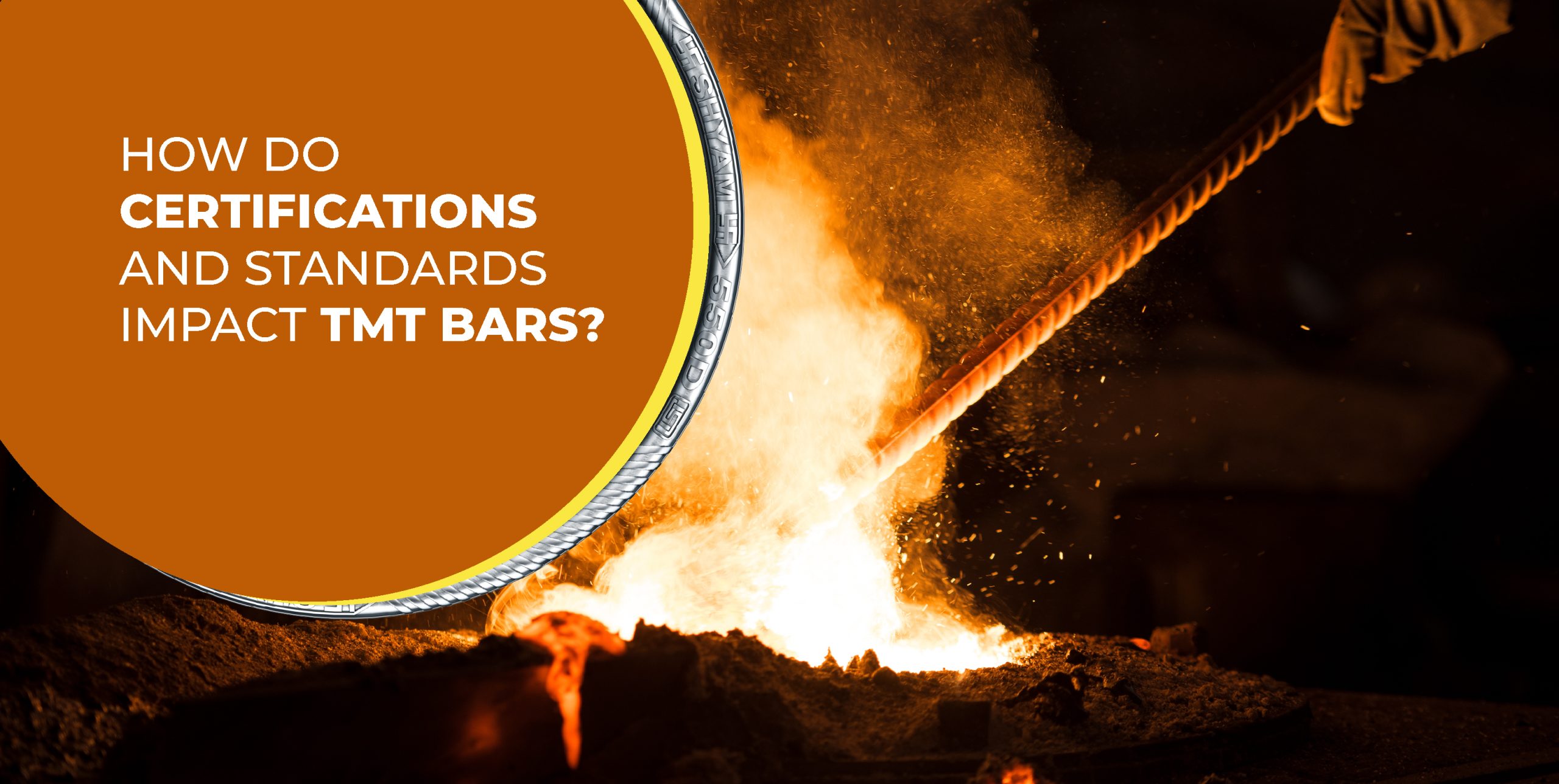How do certifications and standards impact TMT bars?
Crucial for the manufacturing of the TMT bars, the certifications and standards ensure that the TMT bars fulfil the demanded criteria in terms of strength, flexibility, ductility, and corrosion resistance. Therefore, the standards and certifications are, more than anything else, mandatory qualifying assurances that every buyer looks for before purchasing the TMT bars.
A lot goes into validating and certifying the TMT bars. From collecting samples to ensuring robust tests for flexibility, ductility, strength, corrosion, harsh environmental conditions, and others, these bars go through multiple laboratories and reviews before getting the much-needed approval.
Until and unless the TMT bars fulfil the conditions and pass certain tests, including elongation, tensile strength, and bend and re-bend tests, among others, no manufacturers can apply for certification of the bars. Therefore, for these unique bars to have a tough outer surface, certifications are very important for the hallmark of safety.
What do the certifications guarantee?
Once the TMT bars follow the standards and are completely certified, here is what you can expect from those bars.
- Certification guarantees thorough testing at all levels and conformity to establish quality standards. This equates to longevity and structural standards and also defines a solution to all weather-related problems.
- Total compliance with the safety standards ensures enhanced resistance to fire, corrosion and seismic threats.
- Structural integrity is paramount for reliability. A TMT bar bearing a reputable hallmark protects you from the risk of structural failure and ensures the complete safety of the occupants.
- A certified TMT bar also means that it has received a green signal in every test it has undergone. From tensile strength testing to elongation strength testing, durability testing, and re-bend testing, a certified TMT bar fulfils all conditions and tests.
Boosting consumer confidence
The certifications are a mark of reliability and trust for the contractor and consumers. When a TMT bar manufacturer meets the certification standards, it assures that the TMT bars comply with the recognized standards. It also ensures that the TMT bars fulfil the quality requirements and are rigorously tested. Besides building confidence, it also enhances the product’s marketability.
Having certifications like ISO and BIS in this competitive market scenario can be a significant differentiator. It shows the manufacturer’s commitment to quality and compliance with the safety requirements. It also makes the products attractive to larger infrastructure projects and attracts international clients.
Facilitates Regulatory Compliance
In many countries, including India, TMT bar certifications are mandatory for government regulations. They are also essential for the public infrastructure projects. Compliance with these bars is critical for manufacturers to sell their products legally in the market. Moreover, adhering to national and international standards ensures that the TMT bars meet the necessary safety and legal requirements. It also helps in avoiding legal complications and penalties from the government.
For contractors and construction companies, using certified TMT bars is also crucial for obtaining necessary building permits and insurance coverage. Sometimes, using substandard materials can lead to project delays, increased expenses, and catastrophic structural failures.
Enhancing Durability and Corrosion Resistance
TMT bars are often exposed to adverse weather conditions like moisture, salt, and chemicals and might rust over time. Safety standards help regulate the production process, which enhances their corrosion resistance. For example, some government standards require the TMT bars to undergo treatments like surface coating or controlled water quenching during manufacturing. This helps increase their durability and also makes them resistant to corrosion.
Conclusion
The TMT bars’ quality, durability, and safety are further enhanced by their certifications and requirements. They provide a standard by which producers of TMT bars can measure up in terms of resilience to shocks and other environmental factors. They also aid in preserving the long-term durability and structural integrity of the structures they reinforce. The standards and certifications offer customers a sense of assurance and trust.
On the other hand, abiding by the standards and certifications opens up more market opportunities for manufacturers and ensures regulatory compliance. Therefore, the impact of the TMT bar standards and certifications is very profound. They not only influence the quality of the material but also ensure the reliability and safety of the construction projects.

